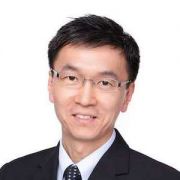Bella didn’t show up for her assigned clinics. Instead, without informing anyone, she joined her classmates in other clinics that were more interesting to her. Another time, Bella didn’t show up in any clinic at all (as confirmed by faculty). When Dr. Harvey confronted her on her attendance, she lied.
Charles seemed to show interest in the specialty and engaged well with the patients. Then one day he didn’t show up at work. Afterwards, he emailed Dr. Harvey to explain that he had decided to self-study instead of see patients. Later, Dr. Harvey heard from an administrator that Charles had returned his hospital badge and submitted his feedback days before the usual end of the rotation date.
On the last day of the rotation, Dr. Harvey held a meeting with the students. He wanted to understand why they were absent so frequently, seemed disinterested, and didn’t notify him of schedule changes.
Bella said the greatest learning value came from seeing standardized patients and doing simulations, followed by attending lectures and tutorials. To her, seeing real patients had the lowest learning value. She further believed that observing faculty deal with ‘patient administrative matters', such as completing insurance forms, was not useful for her future career.
Charles said he was focused on passing the summative exam at the end of the rotation. He saw attending patient clinics as optional.
Dr. Harvey heard that these students had had numerous absences in other clinical rotations and in other hospitals throughout the year. But no one had explicitly addressed this with them before.
One month later, Dr. Harvey received the end of rotation feedback from these students. They gave him and his rotation a failing grade.
Despite Dr. Harvey’s best efforts, why did the students choose not to acquire the knowledge, skills, and attitudes of their chosen profession?
The students believed that seeing patients was less important than self-studying and doing simulations. Are they demonstrating internal motivation as per humanistic theories such as self-directed learning? Is this a repudiation of experience as the source of learning and development, as per Kolb’s theory? Or is this consistent with generational theories, reflecting a millennial preference shaped by online social interactions and alternative realities?
The students didn’t notify faculty when they switched and missed clinics on their own. Is this simply disrespect or irresponsibility? Or a keen awareness of power as noted by social learning theory? When the university creates the exam and determines who passes and who fails solely through grades, are the students simply acting rationally by focusing on these incentives? If so, then how would a university incentivize professionalism, or clinical competence?
Despite numerous absences, the students failed Dr. Harvey and his rotation. Is this arrogance? Is this revenge for Dr. Harvey explicitly addressing their lack of professionalism? Or is this a negative example of reflective and transformative learning models? Kruger and Dunning noted that in many domains, people who are unskilled overestimate their abilities: ‘Not only do these people reach erroneous conclusions and make unfortunate choices, but their incompetence robs them of the metacognitive ability to realize it.’
Please comment on the case with your thoughts below:
- Why do YOU think Bella and Charles chose not to adhere to the clinical rotation structure?
- How do we reach those who choose not to learn in the way we choose to teach?
References
- Taylor DCM, Hamdy H. Adult learning theories: Implications for learning and teaching in medical education: AMEE Guide No. 83. Med Teach [Internet]. 2013 Nov [cited 2018 Apr 15];35(11):e1561–72. Available from: http://www.tandfonline.com/doi/full/10.3109/0142159X.2013.828153
- Kolb DA. Experiential learning: experience as the source of learning and development. Prentice Hall; 1984.
- Farnsworth V, Kleanthous I, Wenger-Trayner E. Communities of Practice as a Social Theory of Learning: a Conversation with Etienne Wenger. Br J Educ Stud [Internet]. 2016 Apr 2 [cited 2018 Apr 15];64(2):139–60. Available from: http://www.tandfonline.com/doi/full/10.1080/00071005.2015.1133799
- Kruger J, Dunning D. Unskilled and unaware of it: how difficulties in recognizing one’s own incompetence lead to inflated self-assessments. J Pers Soc Psychol [Internet]. 1999 Dec;77(6):1121–34. Available from: http://psycnet.apa.org/doiLanding?doi=10.1037%2F0022-3514.77.6.1121
Ambrose CS Cheng

Ambrose Cheng, MD (Educators ’11) is an Associate Program Director for the National Psychiatry Residency Program in Singapore. He is actively involved in undergraduate and postgraduate training. He is interested in learning, neuroscience, and culture. Ambrose can be reached at ambrosecscheng@gmail.com

